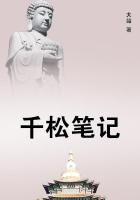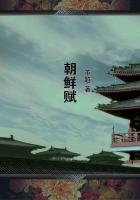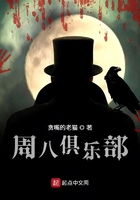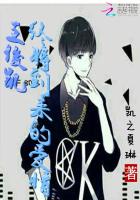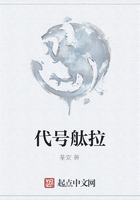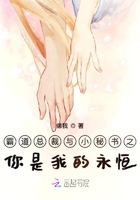The straw-wagon, laden with children seated upon the golden trusses of straw, looked like a wagon-load of blossoms. Fair and dark heads, rosy faces looked forth in charming clusters. They sang, they chattered. It made no difference to them that it was not the season for a straw-ride, that the trusses were musty. They inhaled the fragrance of blooming boughs under which they rode, and were quite ob-livious to all discomfort and unpleasantness. Poor Miss Parmalee, with her feet going to sleep, sneezing from time to time from the odor of the old straw, did not obtain the full beauty of the spring day.
She had protested against the straw-ride.
"The children really ought to wait until the season for such things," she had told Madame, quite boldly;and Madame had replied that she was well aware of it, but the children wanted something of the sort, and the hay was not cut, and straw, as it happened, was more easily procured.
"It may not be so very musty," said Madame;"and you know, my dear, straw is clean, and Iam sorry, but you do seem to be the one to ride with the children on the straw, because" -- Madame dropped her voice -- "you are really younger, you know, than either Miss Acton or I."Poor Miss Parmalee could almost have dispensed with her few years of superior youth to have gotten rid of that straw-ride. She had no parasol, and the sun beat upon her head, and the noise of the children got horribly on her nerves. Little Lucy was her one alleviation. Little Lucy sat in the midst of the boisterous throng, perfectly still, crowned with her garland of leaves and flowers, her sweet, pale little face calmly observant. She was the high light of Madame's school, the effect which made the whole. All the others looked at little Lucy, they talked to her, they talked at her; but she remained herself unmoved, as a high light should be. "Dear little soul," Miss Parmalee thought. She also thought that it was a pity that little Lucy could not have worn a white frock in her character as Queen of the May, but there she was mistaken. The blue was of a peculiar shade, of a very soft material, and nothing could have been prettier. Jim Patterson did not often look away from little Lucy; neither did Arnold Carruth; neither did Bubby Harvey;neither did Johnny Trumbull; neither did Lily Jennings; neither did many others.
Amelia Wheeler, however, felt a little jealous as she watched Lily. She thought Lily ought to have been queen; and she, while she did not dream of competing with incomparable little Lucy, wished Lily would not always look at Lucy with such wor-shipful admiration. Amelia was inconsistent. She knew that she herself could not aspire to being an object of worship, but the state of being a nonentity for Lily was depressing. "Wonder if I jumped out of this old wagon and got killed if she would mind one bit?" she thought, tragically. But Amelia did not jump. She had tragic impulses, or rather im-aginations of tragic impulses, but she never carried them out. It was left for little Lucy, flower-crowned and calmly sweet and gentle under honors, to be guilty of a tragedy of which she never dreamed.
For that was the day when little Lucy was lost.
When the picnic was over, when the children were climbing into the straw-wagon and Madame and Miss Acton were genteelly disposed in the victoria, a lamentable cry arose. Sam drew his reins tight and rolled his inquiring eyes around; Madame and Miss Acton leaned far out on either side of the vic-toria.
"Oh, what is it?" said Madame. "My dear Miss Acton, do pray get out and see what the trouble is.
I begin to feel a little faint."
In fact, Madame got her cut-glass smelling-bottle out of her bag and began to sniff vigorously. Sam gazed backward and paid no attention to her. Ma-dame always felt faint when anything unexpected occurred, and smelled at the pretty bottle, but she never fainted.
Miss Acton got out, lifting her nice skirts clear of the dusty wheel, and she scuttled back to the up-roarious straw-wagon, showing her slender ankles and trimly shod feet. Miss Acton was a very wiry, dainty woman, full of nervous energy. When she reached the straw-wagon Miss Parmalee was climb-ing out, assisted by the driver. Miss Parmalee was very pale and visibly tremulous. The children were all shrieking in dissonance, so it was quite impossible to tell what the burden of their tale of woe was; but obviously something of a tragic na-ture had happened.
"What is the matter?" asked Miss Acton, tee-tering like a humming-bird with excitement.
"Little Lucy --" gasped Miss Parmalee.
"What about her?"
"She isn't here."
"Where is she?"
"We don't know. We just missed her."
Then the cry of the children for little Lucy Rose, although sadly wrangled, became intelligible. Ma-dame came, holding up her silk skirt and sniffing at her smelling-bottle, and everybody asked ques-tions of everybody else, and nobody knew any satis-factory answers. Johnny Trumbull was confident that he was the last one to see little Lucy, and so were Lily Jennings and Amelia Wheeler, and so were Jim Patterson and Bubby Harvey and Arnold Carruth and Lee Westminster and many others;but when pinned down to the actual moment everybody disagreed, and only one thing was cer-tain -- little Lucy Rose was missing.
"What shall I say to her father?" moaned Ma-dame.

